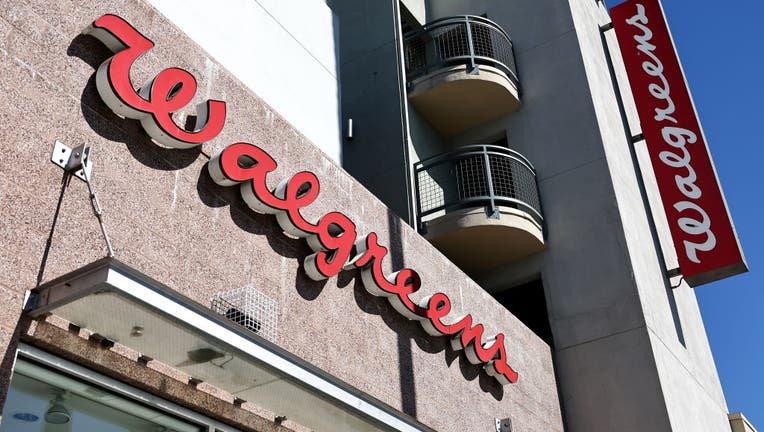CVS, Walgreens, Rite Aid closing stores: a brick and mortar downfall?

The Walgreens logo is displayed at a Walgreens store on October 31, 2023 in Los Angeles, California. (Photo by Mario Tama/Getty Images)
The major U.S. pharmacy chains have closed locations around the nation in recent years amid the rise in online pharmacies.
It’s a trend that Jonathan Palmer, senior health care analyst at Bloomberg Intelligence, projected will continue especially as the dependency on online services continues to grow.
Just this week, Walgreens announced that it would close a "significant" number of under performing stores across the U.S. due to ongoing challenges with profitability and declining margins.
Earlier this month, Rite Aid announced that 27 locations in Michigan and Ohio have been added to the growing number of stores it plans to close while it restructures under Chapter 11 bankruptcy.
The initial list of store closures stood at 154 and has continued to grow throughout the bankruptcy proceedings which involves footprint optimization.
In 2021, CVS announced that it was shuttering 900 of its 10,000 retail locations over a three-year period.
CVS and Walgreens declined to comment on specifics of the closures. Rite Aid has not immediately responded to FOX Business' request for comment.
Palmer told FOX Business that the closures were the result of a culmination of a couple of different things, but online pharmacies have contributed to this downfall.
"More consumers buy online than ever before and with next-day delivery in many cases - the value proposition of retail pharmacy isn't as compelling," Palmer said.
He argued that while pharmacies are convenient for household products, they aren't cheap.
"They're at a significant premium to a Walmart or a Target," Palmer said.
On top of that, the "reimbursement for dispensing drugs has been pressured by managed care and payers for years." There have also been more alternatives than ever before, such as the likes of Amazon Pharmacy, GoodRx or Mark Cuban's Cost Plus, he noted.
While suburbia is "relatively safe" from such closures, urban and rural communities won't be. Palmer estimated that they "are likely to face the brunt of the closures."
This, he believes, should continue "as more and more options gain traction for online prescriptions."
The online channel got a significant boost in demand during the pandemic when consumers were forced to rely on it. However, the trend has persisted ever since.
"Whereas once virtual care wasn't common, suddenly online was the only option and with that adoption of virtual care there was a greater recognition that online pharmacy was also a viable route," Palmer said, adding that "everyday there are more patients who have only lived in a world where online shopping was the norm and that slow demographic shift is also a contributor."
GET UPDATES ON THIS STORY AT FOXBUSINESS.COM

